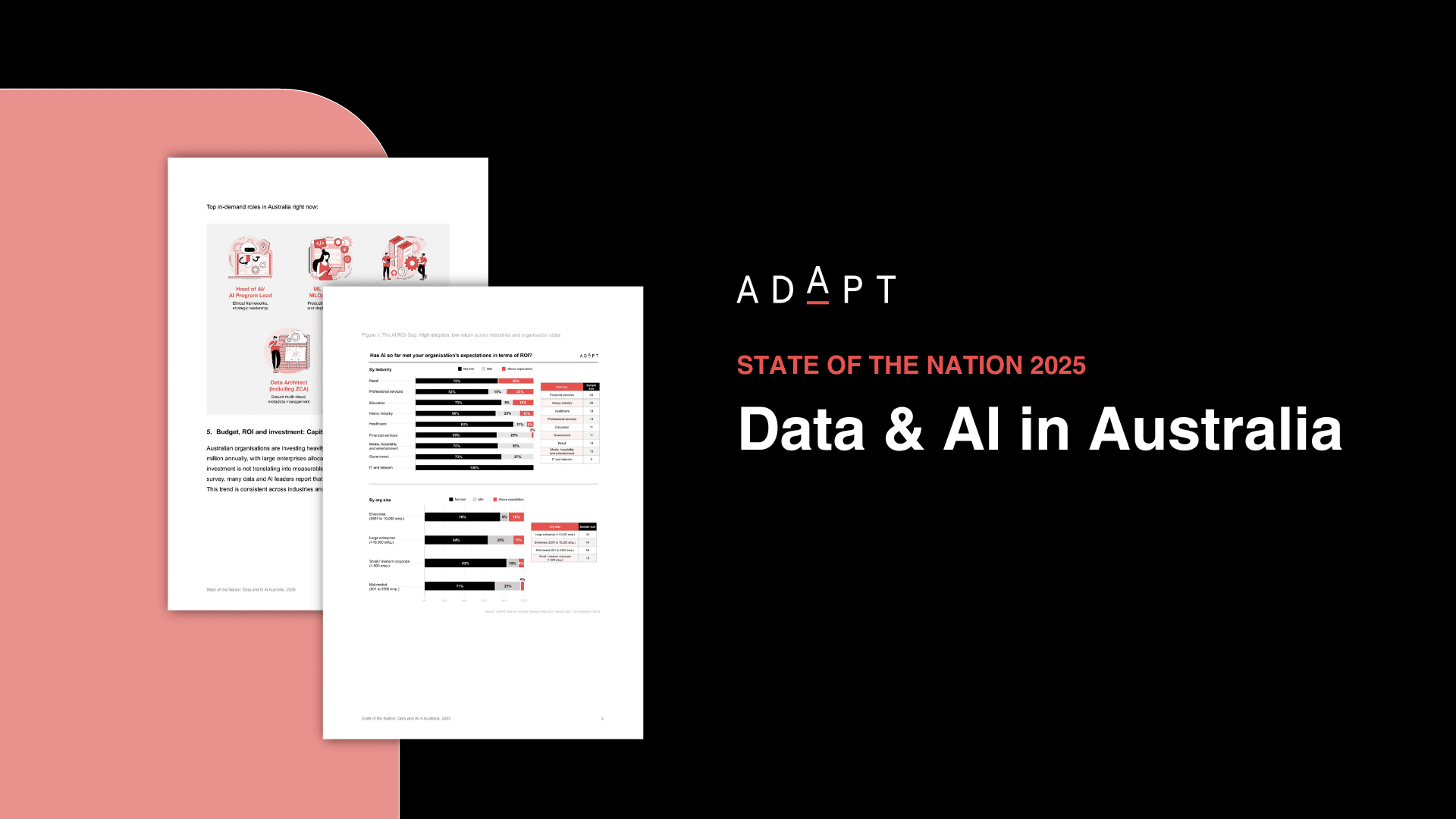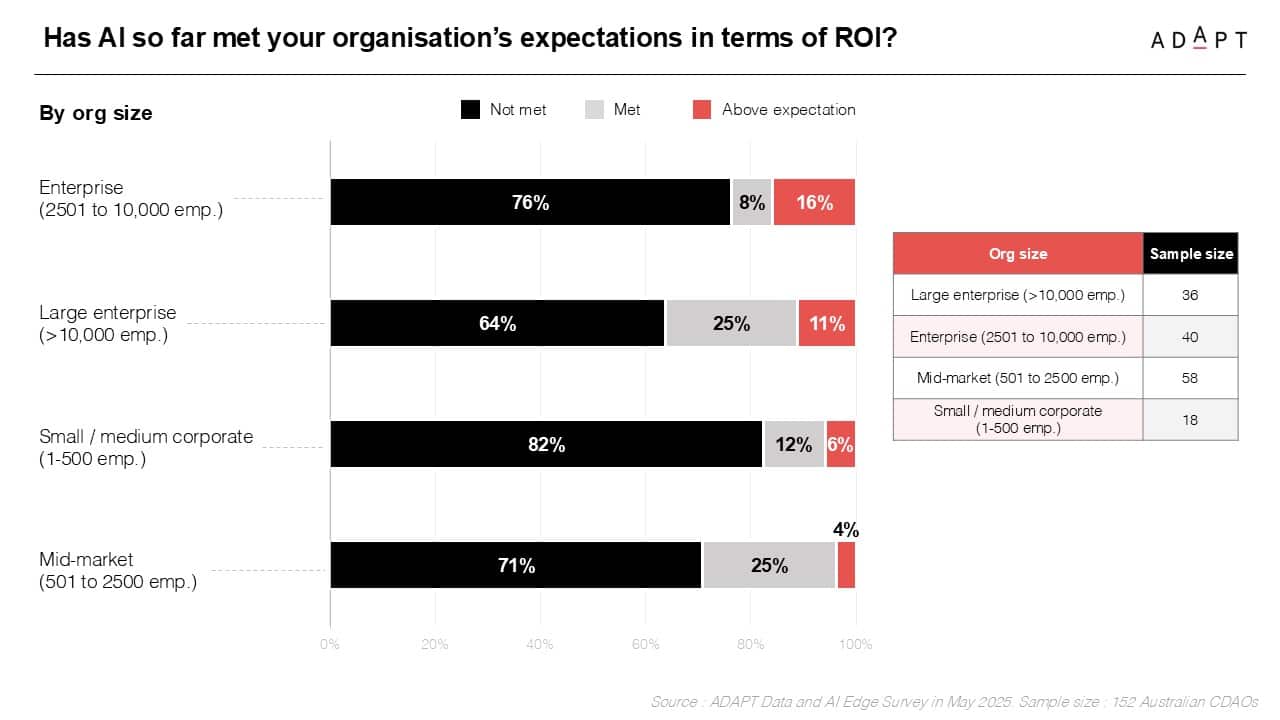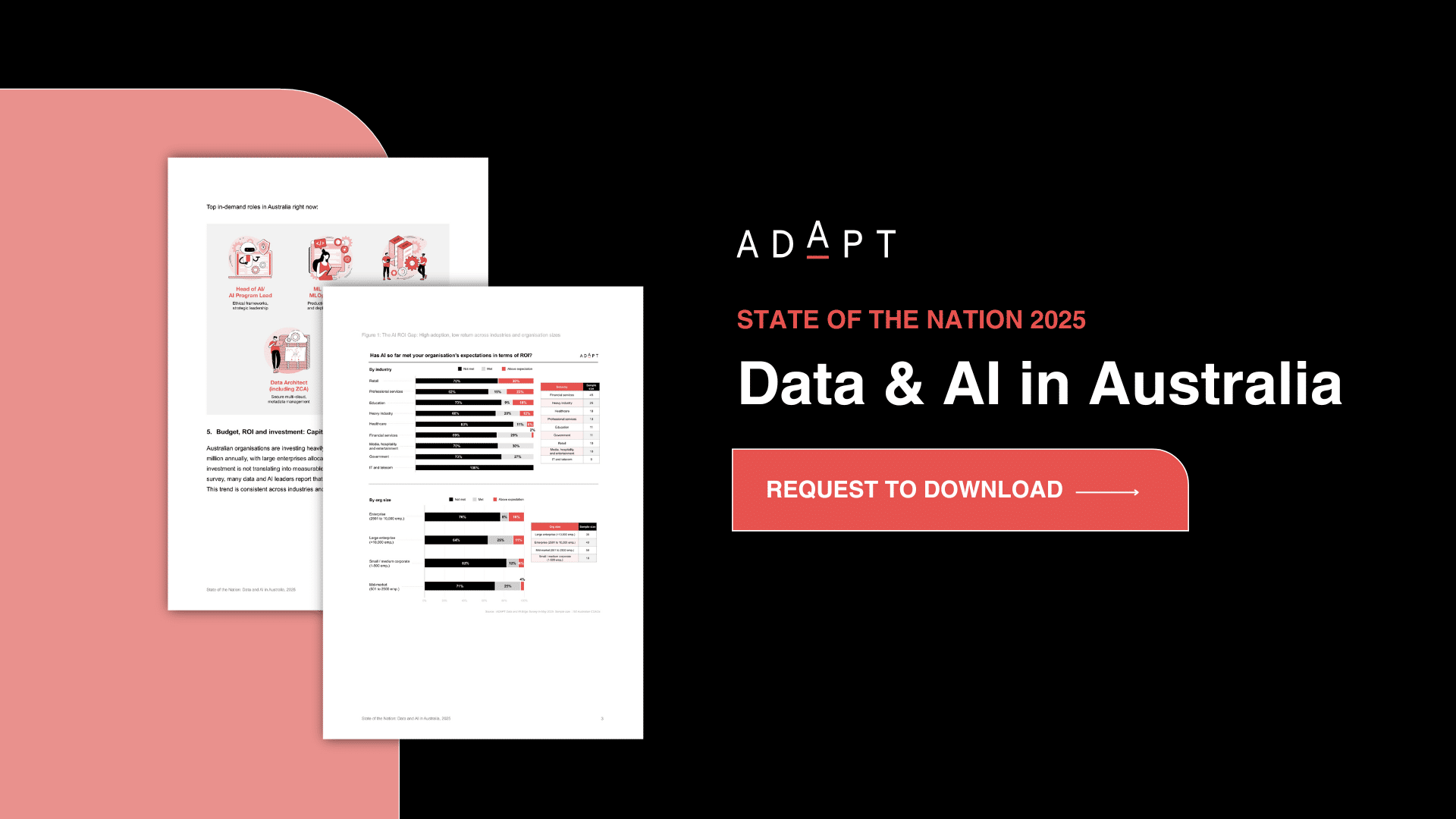The state of data & AI in Australia 2025

Australian enterprises face a critical paradox: AI investment averages $28 million annually, yet 72% report failing to achieve measurable ROI.
Our analysis of 450+ CDAOs and CIOs reveals unprecedented ambition undermined by systemic execution gaps.
The evidence is stark. While 78% of boards treat AI as strategic, only 24% possess AI-ready data architectures.
Three fault lines emerge: fragile data foundations, governance structures lagging deployment velocity, and systematic underinvestment in human capability.
This report is a strategic guide for CIOs, CDAOs, and business leaders to move from fragmented experimentation to disciplined execution.
It offers data-driven benchmarks, frontline insights, and case studies to help close the AI readiness gap and turn ambition into impact.
Key trends:
- Fix the value gap: Healthcare (83% ROI shortfall) and mid-market firms (71%) show the cost of misaligned deployment. Organisations chase low-impact admin tasks while ignoring high-value pricing and CX opportunities.
- Data as the Achilles’ heel: Less than a quarter of enterprises say their data is ready for AI. Critical gaps persist in integration, quality, and architecture—leaving even the most advanced models operating on unstable ground. Over 60% are unaware of foundational frameworks like Zero Copy Architecture.
- Governance blind spots are growing: Although 78% of leaders say AI is a board-level priority, fewer than 26% have formal AI ethics structures in place. Case studies from I-MED Radiology and City of Casey reveal a governance crisis that threatens trust, compliance, and sustainability.
- Use case mismatch: AI is being deployed for admin and documentation—useful but low-impact—while high-value use cases like pricing, CX, and strategic decision-making remain underdeveloped. This signals a maturity ceiling driven by risk aversion and capability limits.
- Talent and training deficit: AI tooling is outpacing workforce readiness. Only 6% of organisations mandate enterprise-wide training, and one in four have no preparation plan at all. Without urgent upskilling, Australian enterprises risk falling behind global peers.























